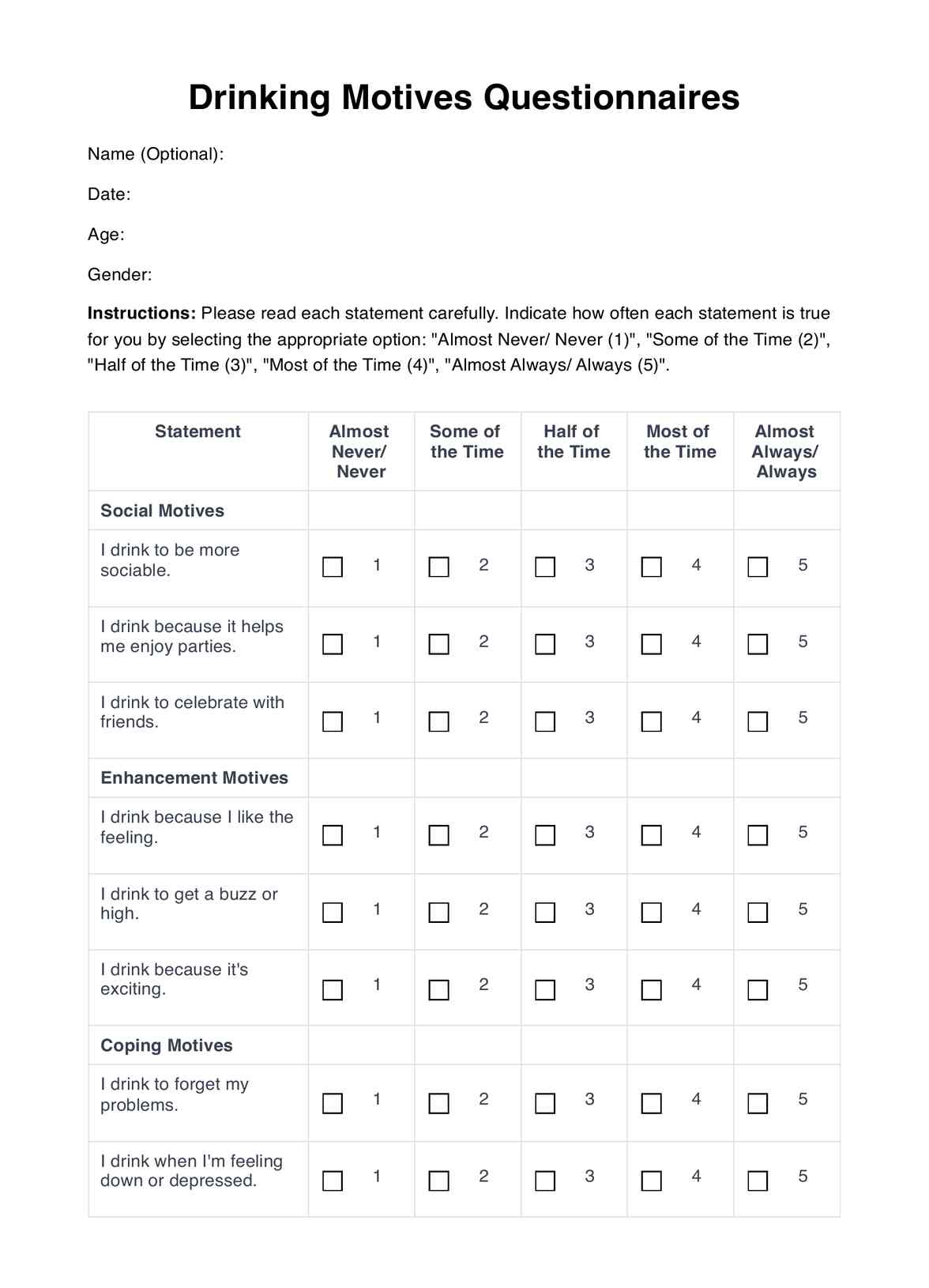The DMQ is used by individuals, professionals in mental health and addiction fields, and researchers studying alcohol use.

Drinking Motives Questionnaire
Uncover the reasons behind drinking habits with our comprehensive Drinking Motives Questionnaires. Download our free PDF to learn more.
Use Template
Drinking Motives Questionnaire Template
Commonly asked questions
The DMQ can be used anytime there's a need to understand the motives behind someone's alcohol consumption.
The individual fills out the questionnaire and rates how often each statement applies to them. The answers are then evaluated to understand the individual's drinking motives.
EHR and practice management software
Get started for free
*No credit card required
Free
$0/usd
Unlimited clients
Telehealth
1GB of storage
Client portal text
Automated billing and online payments











